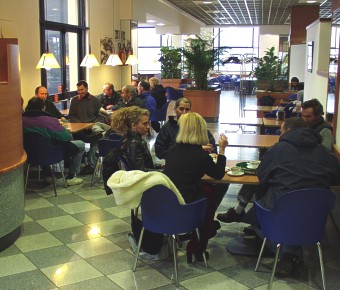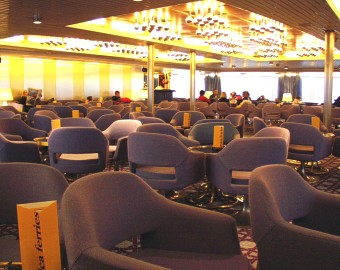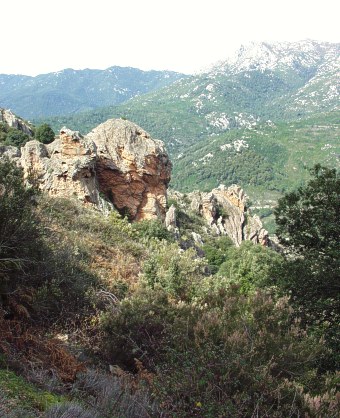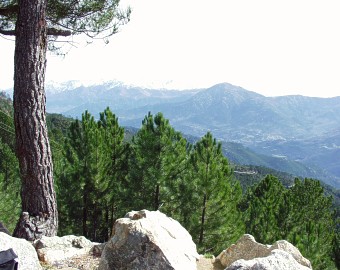|
"Wake up! We're changing drivers!", says Mila, shaking me by the shoulder. Damn, it was just a dream! "Where are we?", I stutter sleepily and with sticky eyes try to discern sections of the rapidly moving landscape out of the little side window of the car. "Bolzano is far behind us, Verona a little way ahead and it's not quite 400km to the port of Livorno". Oh well, back behind the wheel. 'Only' four hundred kilometers. And then four hours by ferry on the Mediterranean. Oh to just be there already!
Considering it's the beginning of March, it was surprising to get through the Brenner Pass without having to use snow chains, and actually, our tires even stayed dry. Evidently we'll make the ferry hours early. The sleeping Mila slumped over in the back seat in a turn, and fell into a deep sleep. It's well past midnight and three passenger cars with six hang gliders on the roofs hurtle south through the darkness at high speed.
In Italian mountains before the city of Bologna we encounter our first difficulty. A snowstorm with hail and rain hits all of a sudden. Really all that's missing are falling wheelbarrows. Immediately the road is covered with a layer of wet snow and hail. Thanks to the +3 degrees temperature, though, it doesn't get a chance to freeze and following several dramatic kilometers we're out of it. We get to port Livorno really ahead of schedule, and we have several coffees at the departure terminal of Stazione Maritima at N43°33.258' E010°18.106', and after several hours of waiting we drive into the bowels of the huge, half-empty ferry.

Starting its gigantic motors shakes the entire boat and following several minutes of manoeuvring in port we head out southwest, into open sea. The ferry moves along at 34km/hour and the sea is relatively calm today. The big social room on the sixth floor is virtually empty and very quiet, only one French passenger sits at the piano in the corner of the room and nostalgically begins to improvise on its keys. Several passengers sip coffee without hurry at tables and peace and tranquillity dominate. Only a slight rocking motion gives away the movement of the boat, while the port of Bastia on the northeast coast of Corsica slowly nears.

|
The French Island of Corsica
Corsica is a very mountainous and very expansive island full of cliffs, pastures and far-reaching vineyards. It covers an area of 8700 km2 and the distance from the southern to the northern tip of the island is approximately 200km, while from the East to the West it is about 90km.

The mountains in the central part of the island reach heights of over 2,500 meters above the surface of the Mediterranean, and now, in March, there is understandably snow on their peaks. The highest peak, Monte Cinto, is 2710m high. Corsica, as opposed to Sardinia does not belong to Italy but to France. The currency is the French Franc and the locals speak a mixture of French and Corsican. The entire population of the island is barely 150,000 inhabitants, a third of which live in the city of Ajaccio on the western shore, another third in the city of Bastia on the eastern shore and the rest are scattered among small towns and villages. Following over four hours of sailing, we reach the pier in the port of Bastia.

While it rained steadily during the ferry trip, the rain evidently had just ceased in the streets of Bastia. We tune in the 'Nostalgia' station on our radio at 91.4MHz and head North along the eastern shore, where we hope to find a suitably tucked away place to spend the night. Past the village of Marine de Porticciolo we find a small beach at the mouth of a small stream at coordinates N42°52.553' E009°28.346', and quickly set up our tents in the dark. The air temperature is a pleasant 16°C, and I slip into my sleeping bag only lightly clad. Even though the sound of the ocean tide is an usual noise for me, I soon lose consciousness of its monotonous roar. Only the wind occasionally shakes the imperfectly taut canvas of the tent. I barely hear the gathering raindrops. I fall asleep. 1000km from Prague.
|



